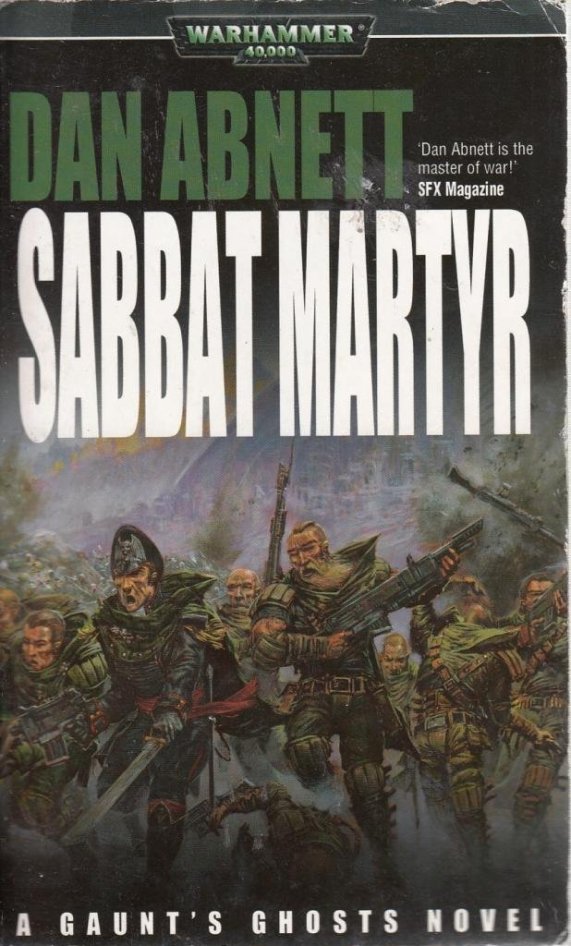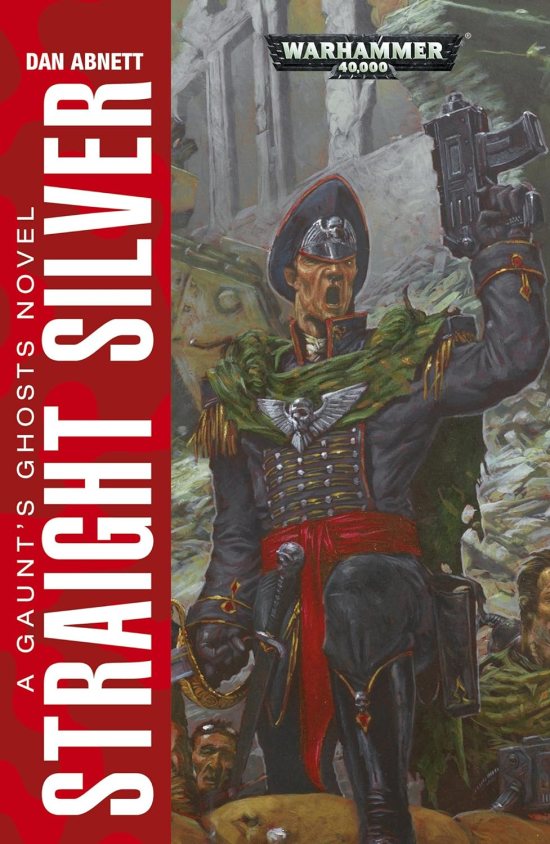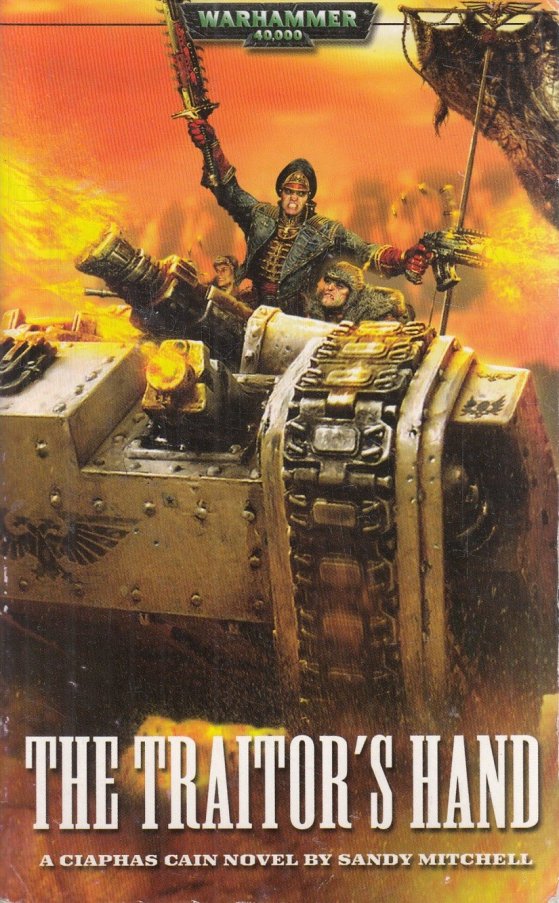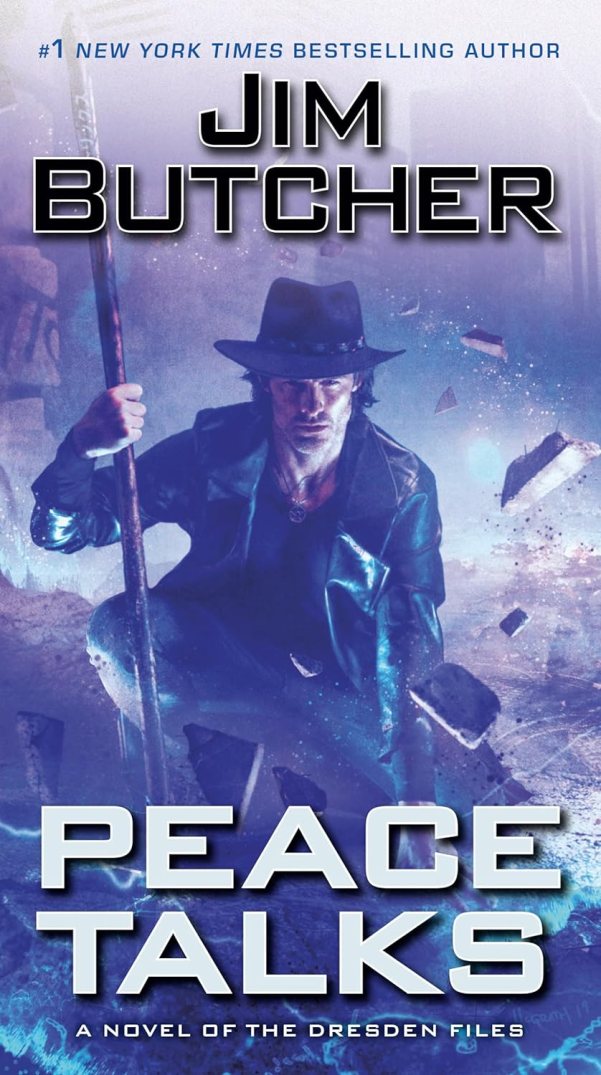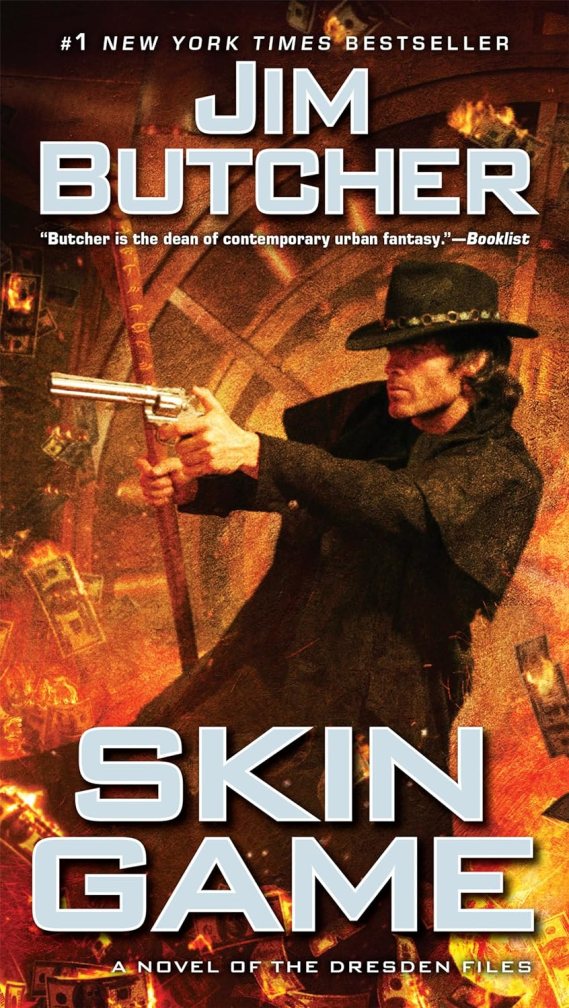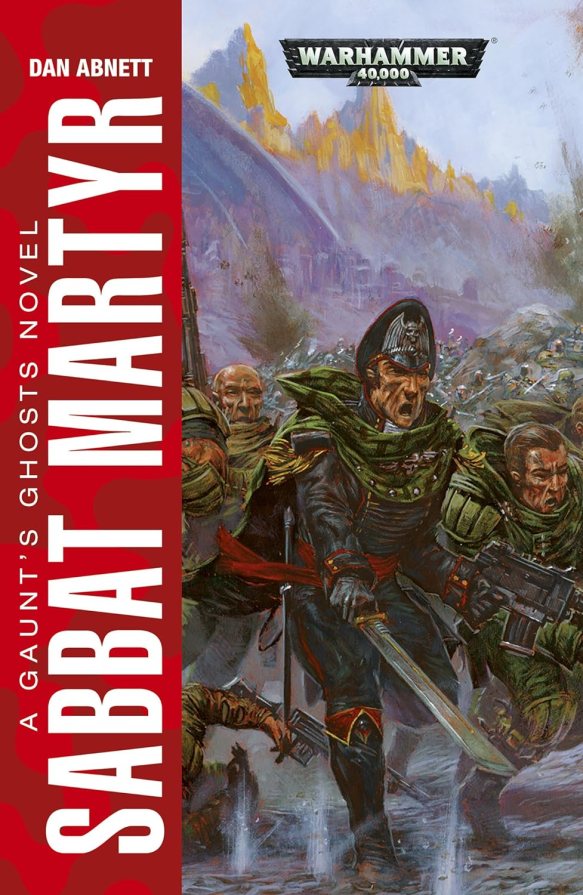
Publisher: Black Library (Audiobook – 1 December 2002)
Series: Gaunt’s Ghosts – Book Seven
Length: 10 hours and 35 minutes
My Rating: 4.75 out of 5 stars
In addition to my review for Straight Silver, I also present a review for the impressive and epic seventh novel in Dan Abnett’s Gaunt’s Ghosts series, Sabbat Martyr. This was an outstanding and fantastic addition that perfectly followed on from some of the previous books in the series, including Necropolis, Honour Guard and The Guns of Tanith, while also throwing the beloved protagonists into all manner of trouble.
It is a time of miracles in the Imperium of Man. As Warmaster Macaroth continues his extensive and exhaustive Sabbat World Crusade, the forces of the Imperium are stretched like never before. However, word has reached the ears of all the faithful in the Sabbat Worlds that the legendary Saint Sabbat has reincarnated on the isolated and pious world of Herodor. There, in Civitas Beati, a holy city dedicated to her, the reborn Saint awaits the faithful, the pilgrims, and the mighty warriors of the Imperium.
Amongst those summoned to Herodor are the battle tested and weary soldiers of the Tanith First-and-Only, better known as Gaunt’s Ghosts. Thanks to their previous victories, as well as their involvement in miracles associated with the Saint, the Ghosts and their leader, Colonel-Commissar Gaunt, have been personally chosen by Sabbat to be her honour guard. However, nothing on Herodor is as it seems, and Gaunt finds himself drawn into deceptive military politics and the manipulated beliefs of the city. Worse, the forces of the Emperor of Mankind aren’t the only ones who have heard the call of the new Saint.
As Gaunt attempts to establish order in the city, an unstoppable danger appears on the horizon in the form of the infamous followers of Chaos, the Blood Pact. Lead by the terrible Chaos warlord, Enok Innokenti, the invading forces of Chaos have one mission: find and kill the reborn Saint, and, by doing so, rob the Imperium of hope. Desperately outnumbered and faced with impossible odds, Gaunt and his ghosts will need to do all they can to save the Saint and the city. However, the dread Innokenti will have the Saint’s head by any means necessary and has sent nine deadly and corrupt killers to ensure this happens. Can Gaunt and the Tanith First-and-Only pull off a miracle in the name of their blessed saint, or is this their final battle?
Abnett pumps up the feels and brings together some amazing storylines in this seventh excellent Gaunt’s Ghosts book. An action-packed and highly intense read, Sabbat Martyr was another exceptional read, and one that I absolutely powered through thanks to its addictive and powerful story.
Sabbat Martyr has a pretty impressive story behind it, especially as Abnett wraps up the Saint sub-series within the larger Gaunt’s Ghosts books, in a big way. Starting off fairly typically, with the Ghosts arriving on a new world to take care of some riffraff, Abnett quickly sets the scenes and revisits several of the key existing storylines and character arcs. However, Sabbat Martyr goes in some intriguing new directions as Gaunt and his soldiers encounter what appears to be a reborn Imperial Saint, who has inspired a new bout of religious fervour and devotion in the region. This proves to be an interesting new angle which ties this book into the larger concerns of the Warhammer 40,000 universe, rather than focusing on the fight of the common footslogger. I liked this change of focus, especially as it fits with the hints raised in the preceding novels, and the initial intrigues of the novel added a level of uncertainty that worked quite nicely. A fantastic, extended battle scene ended the first third of the book nicely, especially as it leads to some big revelations and sets the scene for the second half of the book.
The second half of Sabbat Martyr is where things get really interesting. Abnett cleverly uses the start of this half to quickly extend several great character arcs, which sets some figures up for some dark times, while others are restored in interesting ways. However, you don’t have a chance to fully appreciate that, as Abnett then launches the reader right into a new phase of war, as deadly enemies literally rain down around the protagonists. Essentially the entire second half of the book is pure warfare, as the forces of Chaos arrive and harry the Imperial forces on every front, including with an extended space combat sequence. From there, the enemy arrives on Herodor in force, including the nine promised deadly killers, and all the protagonists are thrust into a deadly battle for survival.
I loved this last part of the book, especially as Abnett knows how to write an exceptional war sequence. Expertly splitting the story between numerous point-of-view characters, the resulting carnage is epic, with the protagonists forced into intense street fighting to survive. All these battles are well crafted, and show the protagonists at their most desperate, as they are slowly pushed back with seemingly no hope to win. I really loved these battles, as well as the simultaneous character arcs that tied into them, and you really get drawn in towards the big climax. I did think that Abnett slightly rushed this last half, mainly because he was trying to fit in too much at once. While the nine killers get a good introduction, they weren’t utilised as effectively as they could have been, and their appearances are a little briefer than you would have liked. Indeed, there is so much potential material in this second half that Abnett could have honestly fit his story across two books and really expanded everything out. Still all the big battles are very epic, and the big climatic fight sequence proves to be everything you could have wanted. Abnett wraps everything up with some major tragedy, as multiple character arcs come full circle in a big and emotionally charged way. As such, readers, especially established fans of the series, come away from Sabbat Martyr shaken while Abnett clearly and decisively ends a major chapter in the Gaunt’s Ghosts series.
Abnett does a really good job bringing this epic story to life, and I deeply appreciated just how dark and intense Sabbat Martyr got in places. Expertly utilising multiple character perspectives to tell an elaborate story, you really get sucked into the massive carnage that emerges, and I really must commend Abnett for the impressive battle scenes. Abnett has his methodology set for the Gaunt’s Ghosts books by this point in the series, and I love how smoothly his story unwinds. The blend of character focussed storytelling and intense action makes for an exciting read, and I really got invested in this outstanding seventh entry in the series. I did appreciate how Abnett took his protagonists into the much wider realm of faith, saints and holy power that is well established in other Warhammer 40,000 fiction, but not something we’ve typically seen in this series. It honestly made for a unique change of pace, and Abnett does a great job wrapping ongoing storylines around it. I also appreciated how several loose ends and antagonists from previous novels got revisited here, including one of the big issues I had with Honour Guard which got nicely resolved here. This does mean that unlike the other Gaunt’s Ghosts books, Sabbat Martyr is less accessible for new readers, although Abnett does a good job of summarising old storylines where needed. As such, this proved to be an epic entry in the wider series, and I really enjoyed how this chapter of the Gaunt’s Ghosts books came to an end.
As with all the Gaunt’s Ghosts books, the heart of Sabbat Martyr lays in the extended cast of protagonists from whom the elaborate story emerges. Abnett has a very well-established cast of characters for Sabbat Martyr, and it was frankly moving to see how this story unfolded for them. The author does a good job splitting the story amongst the cast, and I appreciated how this book, unlike the previous novel, didn’t overdo the number of primary cast members. The resulting character arcs and personal stories proved to be very moving and intense to different degrees, and Abnett really got dark in places, especially when it came to bringing certain character storylines full circle.
Now, I won’t go into too much detail about the characters here, because I don’t want to ruin some major parts of the book. However, I will say that Gaunt is once again a great central figure, and it was intriguing to see him impacted by his fate, as well as the many friendships he’s made throughout the series. In addition, Gol Kolea gets a nice addition to his story, which I really appreciated, while one of the original Ghosts, Brin Milo, finds himself going on some bold new adventures that tie in nicely to his long-hinted destiny. The feud between Lijah Cuu and Hlaine Larkin that was such a dark and memorable part of Straight Silver, comes to a great conclusion here, and Cuu really proves to be the ultimate villain of this series. Agun Soric’s battle with his unusual messages is another highlight, especially as Abnett works in some powerful personal struggles, as well as a very dark ending that will leave you hurting. All these character arcs, and more, are handled perfectly and all readers, especially those who have enjoyed the rest of the series, will really appreciate how Abnett continues or concludes them here. However, I may never forgive Abnett for the big tragedy that occurs at the end that ensures the Tanith First-and-Only will never be the same again.
It goes without saying that I ended up listening to Sabbat Martyr on audiobook, especially after how impressed I have been with the previous Gaunt’s Ghosts audiobooks. Coming in with a run time of 10 and half hours, Sabbat Martyr was another descent length Warhammer 40,000 audiobook that I just flew through. This format works so well to tell epic Warhammer 40,000 stories, and I loved how effectively the fight sequences came through in Sabbat Martyr, as you can so easily envision Abnett’s massive action set pieces. A lot of how effective Sabbat Martyr’s audiobook is comes down to excellent narrator Toby Longworth, who is one of my favourite audiobook narrators. Longworth, the established narrator for all things Gaunt’s Ghosts (as well as Abnett’s other audiobooks like, Xenos, Malleus and Hereticus), has long perfected the voices he uses within these audiobooks, and it was great to hear his established tones and voices again. The narrator really has all the key characters down and love the fitting and effective voice each of them has. This impressive voice work deeply enhances an already awesome story, and you really get to feel the emotions and actions of each of the characters. I honestly had such a great time listening to the Sabbat Martyr audiobook, especially in some of the more intense action scenes which swept my imagination away, and this is easily the best format by which to enjoy this amazing book .
With fire, blood and faith, Abnett wraps up a major part of his iconic Gaunt’s Ghosts series in a big way with the epic Sabbat Martyr. Loaded with war, personal conflict, powerful developments, and some memorable tragedy, Sabbat Martyr was a worthy and intense addition to the series, and one that I couldn’t stop listening to. I had such an exceptional time with this book, and Sabbat Martyr, and indeed the entire Gaunt’s Ghosts series, is required reading for all Warhammer 40,000 fans.
